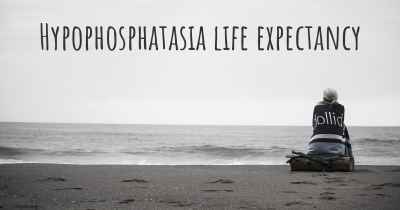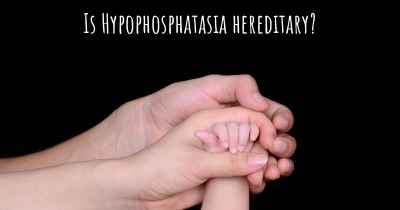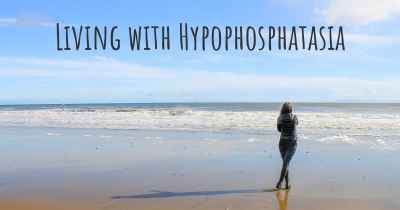Is it advisable to do exercise when affected by Hypophosphatasia? Which activities would you suggest and how intense should they be?
See if it is advisable for people with Hypophosphatasia to practice sports and which ones are the most recommended if you have Hypophosphatasia

Hypophosphatasia (HPP) is a rare genetic disorder that affects the development and maintenance of bones and teeth. It is caused by mutations in the ALPL gene, which leads to low levels of an enzyme called alkaline phosphatase. This enzyme is essential for the mineralization of bones and teeth. As a result, individuals with HPP may experience weak and brittle bones, dental problems, and other skeletal abnormalities.
When it comes to exercise and physical activity for individuals affected by Hypophosphatasia, it is important to approach it with caution and under the guidance of healthcare professionals. The severity and specific symptoms of HPP can vary greatly from person to person, so a personalized approach is necessary.
Benefits of Exercise for Hypophosphatasia:
While exercise cannot cure Hypophosphatasia, it can provide several benefits for individuals with this condition:
- Improved muscle strength and function: Regular exercise can help improve muscle strength and function, which can be beneficial for individuals with weak bones and skeletal abnormalities.
- Enhanced cardiovascular health: Engaging in cardiovascular exercises, such as walking or swimming, can improve heart health and overall fitness levels.
- Weight management: Maintaining a healthy weight is important for individuals with HPP, as excess weight can put additional strain on weak bones and joints.
- Improved mental well-being: Exercise has been shown to have positive effects on mental health, reducing stress and improving overall well-being.
Types of Exercise for Hypophosphatasia:
The choice of exercises for individuals with Hypophosphatasia should be based on their specific symptoms, overall health, and the guidance of healthcare professionals. Here are some types of exercises that may be beneficial:
- Low-impact exercises: Low-impact exercises are gentle on the joints and bones, making them suitable for individuals with weak bones. These can include activities such as walking, swimming, cycling, and using elliptical machines.
- Strength training: Strength training exercises can help improve muscle strength and function. However, it is important to use appropriate weights and techniques to avoid putting excessive strain on the bones. Working with a qualified trainer or physical therapist can ensure safe and effective strength training.
- Flexibility exercises: Stretching and flexibility exercises can help improve joint mobility and reduce the risk of stiffness. These can include activities such as yoga, Pilates, and gentle stretching routines.
- Breathing exercises: Deep breathing exercises and relaxation techniques can help reduce stress and promote relaxation. These can be particularly beneficial for individuals with HPP who may experience pain or discomfort.
Exercise Intensity for Hypophosphatasia:
The intensity of exercise for individuals with Hypophosphatasia should be determined on an individual basis, taking into consideration their overall health, bone strength, and symptoms. It is important to start with low-intensity exercises and gradually increase the intensity as tolerated.
Working with healthcare professionals, such as physical therapists or exercise physiologists, can help determine the appropriate exercise intensity for each individual. They can provide personalized exercise programs and monitor progress to ensure safety and effectiveness.
Precautions and Considerations:
While exercise can be beneficial for individuals with Hypophosphatasia, it is crucial to take certain precautions and considerations:
- Consult with healthcare professionals: Before starting any exercise program, individuals with HPP should consult with their healthcare team, including their primary care physician, geneticist, and/or orthopedic specialist. They can provide specific recommendations and guidelines based on the individual's condition.
- Individualized approach: Each person with Hypophosphatasia may have different symptoms and limitations. Therefore, it is important to tailor the exercise program to the individual's needs and abilities.
- Regular monitoring: Regular monitoring of bone health and overall well-being is essential for individuals with HPP. This can help identify any changes or potential complications related to exercise and adjust the program accordingly.
- Avoid high-impact activities: High-impact activities, such as running or jumping, may pose a higher risk of fractures or injuries for individuals with weak bones. It is generally recommended to avoid or minimize such activities.
- Listen to your body: Individuals with Hypophosphatasia should pay close attention to their body's signals and adjust the intensity or type of exercise accordingly. If any pain, discomfort, or unusual symptoms occur during or after exercise, it is important to seek medical advice.
Conclusion:
Exercise can play a beneficial role in managing Hypophosphatasia by improving muscle strength, cardiovascular health, and overall well-being. However, it is crucial to approach exercise with caution and under the guidance of healthcare professionals. The choice of exercises and their intensity should be personalized based on the individual's symptoms, overall health, and specific needs. Regular monitoring and communication with healthcare providers are essential to ensure safety and effectiveness. By incorporating appropriate exercises into their routine, individuals with Hypophosphatasia can potentially enhance their quality of life and overall health.








